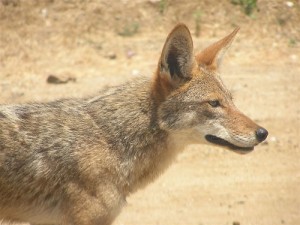Texas Department of State Health Services Annual Rabies Aerial Vaccine Drop
Written by Post Public Information Representative, Jan 6, 2011, 0 Comments
 Courtesy Xochitl Mora,
Courtesy Xochitl Mora,
Laredo, TX – -The City of Laredo Health Department (CLHD) wants to inform the public that The Texas Department of State Health Services (DSHS) will begin its annual airdrop of rabies vaccine baits over portions of southern and western Texas in the continuing effort to protect people and livestock from rabies. These areas include both Zapata and Webb County.
DSHS will drop about 2.35 million doses of rabies vaccine over the next few weeks as part of the DSHS Oral Rabies Vaccination Program. The oral rabies vaccine has made a positive impact in reducing rabies exposure from wildlife (coyotes and gray fox) to domestic canine (pets).
What is the Oral Rabies Vaccination Program (ORVP)?
- It is an innovative program that uses an oral rabies vaccine to control rabies in wildlife.
- The vaccine dose is enclosed in a small packet either coated with fish meal crumbles or inserted into a small, hollow fish meal block.
- · The baits don’t pose any risk to humans, but people should avoid handling them (including hunters) since human contact makes it less likely a wild animal will eat the baits.
Why is ORVP important?
Rabies is a deadly virus spread through the saliva of infected animals, usually by a bite. Preventing rabies is critical because once a person or animal displays symptoms, the disease is almost always fatal.
When will ORVP take place?
ORVP will start on Thursday, January 6, 2011.
In addition to the massive wildlife immunization campaign, DSHS and CLHD urges everyone to have their pets vaccinated against rabies, as required by law. Vaccinating domestic animals is essential to stopping the spread of rabies.
The next CLHD rabies vaccine clinic dates are targeted for late February or Early March, we will alert the public. If you need more information regarding rabies or rabies vaccination, you can contact the Health Department, Disease Control & Epidemiology Division at 795-4951 or Animal Control at 795-4902.



